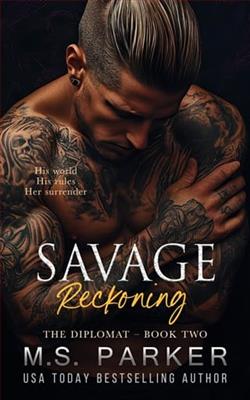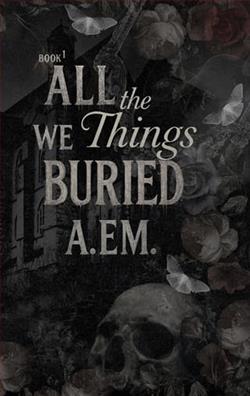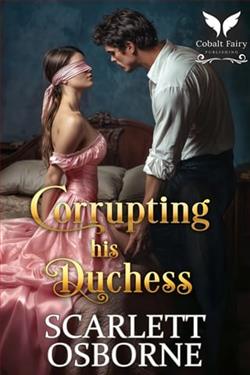Page 62 of Notorious
As he keeps talking about different types of trauma, my lip trembles. Every word he says feels like it applies to my life, and I want to get the fuck outta here. He’s reminding me of nights after we left the ranch when we were drinking hot water for dinner. Mayonnaise sandwiches. Sleeping in the footwell of our car so my sister could have the back seat. Mama cryin’ and not wantin’ us to see, so she’d say she had allergies. Desperately wanting her to be happy so that I could be happy, too.
After what feels like hours, but is likely more like fifteen minutes, the therapist finishes his talk and offers us some books on codependency in case we want to learn more. I wanna set them on fire.
The only way out is through.
I take one of the books with me to my room and open it up. It might be the bravest thing I’ve ever done.
We go to breakout sessions after lunch, and I have an hour to meet with a therapist named Chantal in a private room in the ward.
After introductions, Chantal points to the codependence book I brought in with me. “Did you attend the session this morning?”
“Yes’m.”
“And what did you think about it?”
I sigh. “They said a lotta stuff to think about.”
“Like what?” She gives me a gentle, encouraging smile. That doesn’t mean I wanna start chatting.
Shifting in the uncomfortable plastic seat, I stare at her for a while. Finally, I say, “I get the idea you’re gonna just keep askin’ questions, and I have the choice to either shut my trap or start singing. And since my husband’s paying for this here place, I figure he should get his money’s worth.” The only way out is through. I pinch my nose. “Here goes. When I was a kid, we were very poor, and there was a time we were homeless. This was when my mama got sick. And when that leader was talkin’ about codependency, all I could think about was how much I had to do to care for mama when I was a kid. That’s different from caring for her now, mind.”
“Did you want her to be caring for you instead?”
“No. I ain’t selfish.”
“In here, it’s okay to be selfish. Or what you perceive as selfish. What did you think about having to be so responsible at such a young age? Did you resent her?” Chantal presses.
“Hell no,” I say immediately.
“It’s okay if you do, or did. Or if you resent the situation. It doesn’t make you a bad person. Tell me some more about your childhood.”
I stare at the wall. There’s a poster about STDs and a faded photo of Yosemite National Park next to each other. I tell Chantal the things I already told Kurt about growing up and then about why I’m here.
When I’m done, she says, “I’m wondering what your identity is, other than caregiver. Who are you, Johnny?”
“No idea,” I mutter.
“How did the presentation on codependence make you feel?”
“Pissed me off. ’Cause Mama’s sick. She was sick, and she is sick. Chronic kidney disease. It made me feel like I was doin’ somethin’ wrong when I was doin’ everything I could to get money to her. We were dumpster diving, and outdated food from the back of Walmart was too expensive. What else was I supposed to do?”
Chantal waits for me to finish my rant. Finally, she says, “I think you need to honor what you did to survive. But think about what you gave up. I’m not talking about blaming your mother for getting sick. The situation was the situation. Johnny, you were forced at an early age to be the parent. At a time when you were supposed to be worrying about math homework and the kid at school who caught your eye, you were worrying about putting food in your belly. And not just yours, but your mom’s and your little sister’s.”
“Yeah. I was.”
“So here’s the thing. Some of what you were doing was being responsible. That’s honorable and necessary, especially when you’re caring for a sick relative. Where the line is, though—and I think we can agree that you crossed it or were about to—is thinking you should kill yourself so she could have surgery. Do you agree?”
I don’t answer, and she lets me sit with my thoughts. Finally, I say, “The guy leading that session said a lotta things that bugged me, and some of what he said sounded like my situation and some didn’t, and I don’t know what’s what.”
Chantal tilts her head thoughtfully. “Part of recovery is sifting through information to determine what advice applies to you and what doesn’t. There are a lot of explanations for why people feel the way they do, and deciding what fits for you can be complicated. If what you hear helps you and you connect with it, then see if it’s useful for your recovery. If it isn’t, it’s okay to reject it.” She leans forward in her seat. “With you, we know that taking care of your mother is noble and kind, and you have been very responsible for her, which is generally a good thing. But you need to understand that suicide would be taking it too far. You didn’t answer me before, and this point is crucial. What are your thoughts on it?”
“Most of me still thinks the world would be better off without me,” I admit.
“Then maybe we have more to talk about than your mother’s illness.”
I raise an eyebrow. “I know I got more going on. I filed a lawsuit for sexual harassment. My career’s in the toilet. Things aren’t going well.”
“Then whatever you’d like to tell me, I’ll listen. I think the biggest question is, are you focusing on your mother’s illness to avoid something going on inside yourself?”















